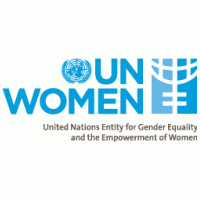Community / Land projects / Governance, land, and the gendered politics of displacement in Pakistan
Governance, land, and the gendered politics of displacement in Pakistan

€182149.4284
05/18 - 03/21
Voltooid
This project is part of
Implementing Organisations
Donors
Data Providers
General
While policymakers and investors perceive land acquisition for infrastructure projects as a positive pathway for economic development, this is not always the experience of affected communities. As a result, land acquisitions have triggered resistance from rural and urban communities. This action research project in Pakistan will investigate three intertwined issues: how rural and urban communities in Pakistan respond to their marginalization in decision-making processes and defend against displacements; how communities organize and demand redress, including better compensation; and how communities experience loss of well-being as a result of loss of land. Its overall objective is to empower rural and urban communities who face eviction following land acquisition, especially women, to seek government support and use social and legal mechanisms to negotiate adequate resettlement and compensation. Project activities will involve training, capacity building, and information dissemination. The research portion will be an opportunity to strengthen the evidence base on land acquisition processes. This information will then be applied to develop gender-sensitive methods to empower affected communities about their rights and entitlements. The project will chart a way forward for strengthening the laws on land ownership and control in terms of language, procedures, and enforcement. It will also look at other mechanisms such as community decision-making and redress mechanisms. In partnership with community organizations, this project will work with affected communities using different tools and interventions, including the law, to increase their awareness so they can negotiate equitable terms and protect their rights and interests. The project will also develop training on psychological well-being and vulnerability involved in land acquisitions and incorporate this into all outreach efforts to the various levels of government. At the same time, the project will feed its results into civil society groups and national and international policy debates. The research will be carried out in Karachi, Pakistan’s largest urban conurbation (a region made up of a number of cities, towns, and suburban areas that has merged to form one continuous urban area), where land/property rights — formal, informal, and customary — are undergoing profound changes. The project will be led by the Institute of Business Administration, Karachi, in partnership with the NGOs Karachi Indigenous Rights Alliance and the Urban Resource Centre, which promotes accountability in land acquisitions in urban and rural areas.



